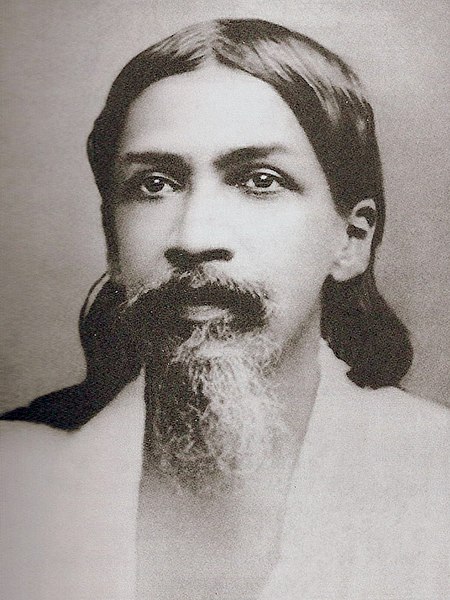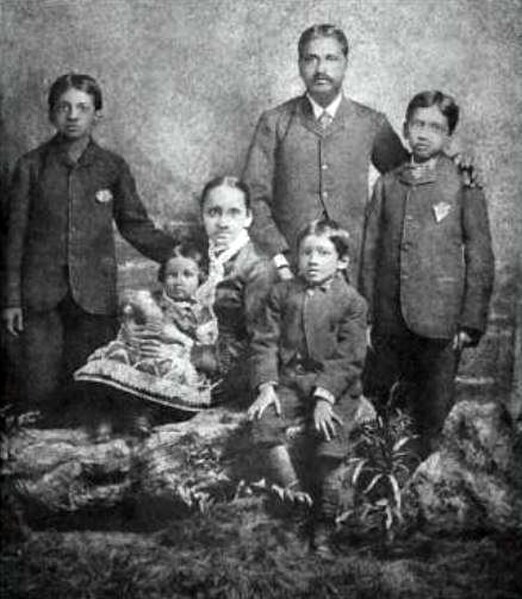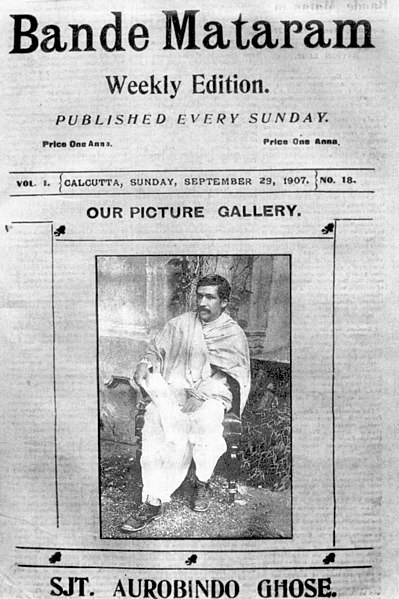Sri Aurobindo was an Indian philosopher, yogi, maharishi, poet, and Indian nationalist. He was also a journalist, editing newspapers such as Bande Mataram. He joined the Indian movement for independence from British colonial rule, until 1910 was one of its influential leaders, and then became a spiritual reformer, introducing his visions on human progress and spiritual evolution.
Aurobindo, c. 1900
Aurobindo (seated centre next to his mother) and his family. In England, ca. 1879
Basement of 49 St Stephen's Avenue, London W12 with Sri Aurobindo Blue Plaque
Copy of Bande Mataram, September 1907
Modern yoga gurus are people widely acknowledged to be gurus of modern yoga in any of its forms, whether religious or not. The role implies being well-known and having a large following; in contrast to the old guru-shishya tradition, the modern guru-follower relationship is not secretive, not exclusive, and does not necessarily involve a tradition. Many such gurus, but not all, teach a form of yoga as exercise; others teach forms which are more devotional or meditational; many teach a combination. Some have been affected by scandals of various kinds.
Maharishi Mahesh Yogi introduced The Beatles, and the West, to gurus, mantras, and meditation in the late 1960s.
The guru–shishya tradition involved a long-term, one-to-one relationship between master and pupil. Watercolour, Punjab Hills, India, 1740
Yogendra, an acknowledged pioneer of modern yoga, rejected the traditional guru role in favour of something more modern.







